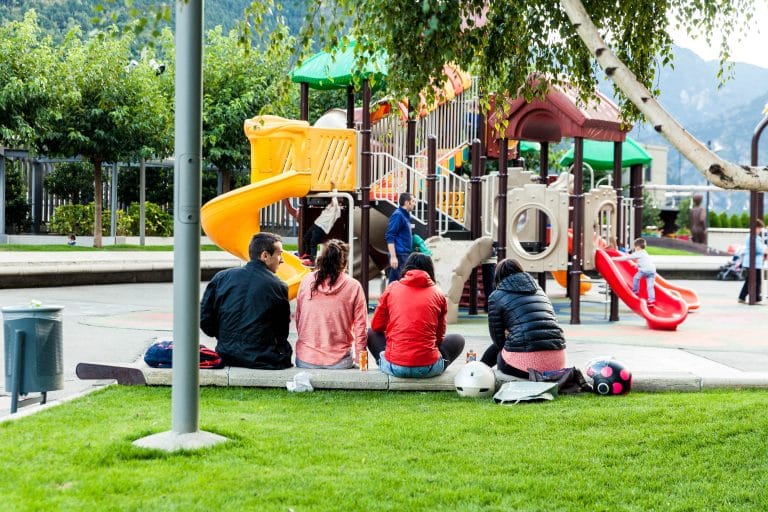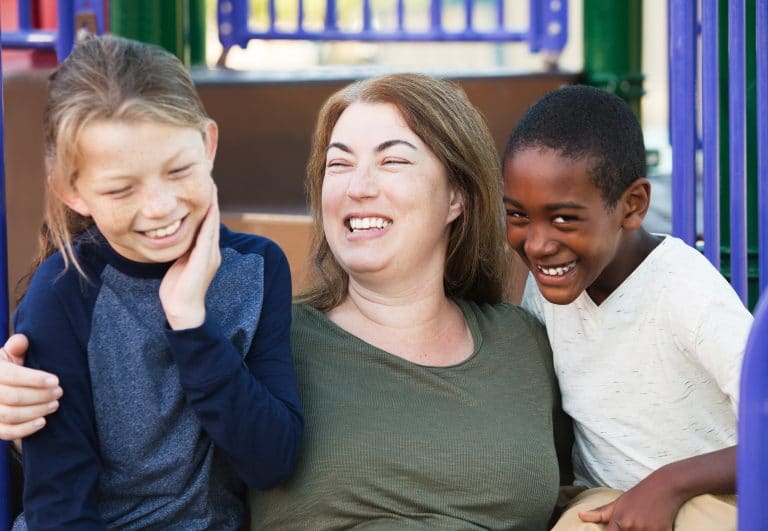Caring for a Young Person with Special Needs – January 2020.
Thank you to Caitriona who shared her own personal story as a foster carer. Catriona and her husband Andrew have been fostering with FFI for over 11 years and have made an incredible difference to the children who they have had in their care for both short and long periods of time.
Ultimately foster caring is a job but far more than that, it is all consuming and you dont get a break. But you do get back, as much as you put in – Caitrionas thoughts on foster caring in a nutshell.
Catriona was raised in England, brought up in a home that was heavily involved in fostering, she always wanted to get involved herself, but her husband was reticent, he felt he would struggle to connect with a child that was not biologically his own.
Over the years through socialising with families involved in fostering, Caitrionas husband Andrew began to realise that fostering is not about loving a child like your own, but offering a safe loving home to a child that has not been given a chance. The couple are now 12 years fostering with FFI and finding the experience rewarding as a family.
In the process of becoming a foster carer, FFI have an extensive tick box list to establish the boundaries of fostering and what you are willing or able to cope with such as:
- Gender
- Age
- Sexual preference
- Witnessed crime (level of trauma)
- Drug withdrawal
- Religion
- Sexualised behaviour
Ironically for the first children they fostered as a couple, Andrew was the primary carer, as Catriona was nursing full time. Many children that are in care experience a delay in emotional development which can be hugely impacted by trauma. Andrew and Caitriona sought to create a home environment where the teenagers they fostered, brothers, could exist at their own level and progress at their own pace. Both boys were home schooled as they struggled with social interactions.
Shortly after, Caitriona was approached to foster a chronically ill baby; she took the decision at the time to retire from nursing and become a full-time carer, while Andrew returned to the work force. That little baby called Rob is now 12 years old and despite ongoing health issues including an organ transplant at a young age, he is doing well. He has a formal diagnosis of Autism and ADHD, his main challenge is with behavioural habits, however, he is attending a mainstream school with a high functioning autism unit. Rob also receives support from CAMHS Child & Adolescent Mental Health regularly.
Although, Caitrionas biological 3 older children who adore him, Rob was keen for Caitriona and Andrew to foster another child so he could experience having a little brother or sister. After careful consideration on how it would work with Rob, Billy joined the family. Billy is 6 years old and was born with a drug addiction leading to sensory issues.
Fostering can be hard work at times but there are added challenges when asked to care for a young person with any kind of disability. Pertinent to mention here that Caitrionas bug bear is the term disability special needs is her preferred term or additional needs is better again.
Catriona explains that additional needs are not always obvious from the outset and getting the correct diagnosis is critical in terms of getting the best care for a child and supporting them with their disability be that physical or mental.
For example, Autism may be obvious from a young age, some other issues such as ADHD may not manifest until a child is older.
Caitrionas advice to best support a child with additional needs, is to have help wording the documents of assessment for Department of Education. Utilise the supports available with an Educational Liaison Officer and from FFI throughout a placement. A child with a diagnosis of additional needs will get ongoing support up to the age of 23 if they continue in full time education, so encouraging a child through the system will make all the difference.
In summary, Catrionas distinction of terms means so much, a child is not disabled or indeed an adult is not but they might just have additional needs. This powerful adjustment of phrase and ultimately attitude can make all the difference in society.
If you feel your family could foster a child and make a difference in their life like Catriona and her family, please get in touch with our team in Fostering First. Visit https://www.fosteringfirstireland.ie/contact-us/ or call at any time on 01-4171944.


